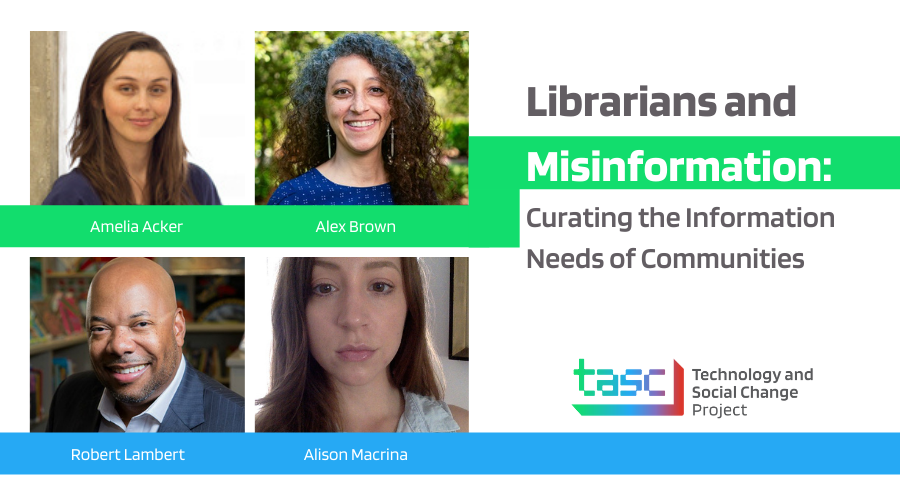Librarians and Misinformation: Curating the Information Needs of Communities

While trust in political institutions rapidly deteriorates and the technology and media companies that we rely on repeatedly fail to meet our information needs, the public still overwhelmingly trusts libraries. That’s because librarians fulfill a service mission as community information stewards–long serving as the only place people can go for free internet access, computer instruction, books and access to critical government resources.
As the information needs of communities have expanded from a crisis of access to a crisis of trust, librarians help patrons discern fact from fiction online and increasingly find themselves defending decisions about which books and information to carry and which to pull. The curatorial decisions of libraries have been shoved into the fray of polarized cultural and political debates about how to educate about racism in public schools, how to provide community resources on queerness, and whether or not to carry literature that promotes hate.
Meanwhile, debates rage about how tech companies and governments can regulate and retool our information ecosystems to keep communities safe and informed. Including the perspective of librarians in these conversations is essential to keeping solutions grounded in serving the information needs of our communities.
Please join us for a much needed conversation with librarians and scholars of misinformation about the health of our digital commons and the democratic institutions that rely on it.
Speakers:
Moderated by Dr. Joan Donovan, research director of the Shorenstein Center
Alison Macrina is an activist librarian and the director of Library Freedom Project. Alison started LFP in 2015 to build community with other librarians who are dedicated to library values of privacy, intellectual freedom, social responsibility, and the public good. She works from a justice orientation, rooted in a materialist analysis that recognizes the systems responsible for oppression.
Alex Brown is a queer Black librarian, local historian, writer, and author of two books on the history Napa County, California’s marginalized communities. They have a BA with honors in Anthropology and Sociology, a Master’s of Library and Information Science, and a Master’s in US History. They are an Ignyte award winning and Hugo award nominated writer and critic who covers speculative fiction and young adult literature for Tor.com, Locus Magazine, NPR Books, and elsewhere. They also write on topics such as queerness, Black history, librarianship, and pop culture.
Robert Lambert is President of York County Libraries. York County Libraries is a federated library system comprised of 13 libraries. More than 48% of York County residents hold library cards and borrow more than 1.8 million items each year. Robert began his career with the Martin Library in 1990 as a Reference Librarian. Robert is also an accomplished Project Manager, leading several important initiatives, including The York Housing Authority Project which built a library and computer resource center for low-income housing residents. He is CEO of LibrariesFeed, a nonprofit organization that provides a social fundraising and engagement platform for public libraries to fight child hunger. It blends crowdfunding with peer-to-peer fundraising and integrates with social networking tools to make philanthropy more social and interactive.
Amelia Acker is an assistant professor at the University of Texas at Austin in the School of Information, where she leads the Critical Data Studies Lab. Her research on data archives and preservation has been funded by the National Science Foundation and the Institute for Museum and Library Services. Acker’s current research focuses on cultures of mobile computing, emerging digital preservation models from platforms, data literacy, social media data for research, and metadata standards for exchange between private and public archives. Previously, Acker worked as a librarian, an archivist, and a mobile app developer. When she’s home in Austin, you can find her biking, bouldering, or swimming around town.